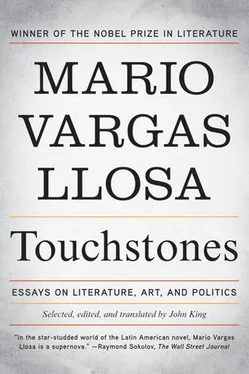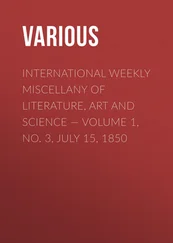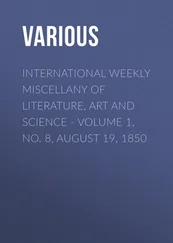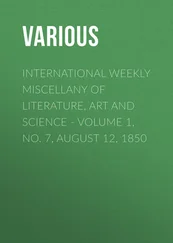An hour after the appointed time, here we are with the man whom the terrorists — who have already killed twenty-seven US soldiers since 9 April, and wounded a further 177 — tried to kill yesterday at the National Museum, an attack that, of course, the security forces had detected and dealt with in time. He tells me that he spent his honeymoon in Peru in 1965 and that, thanks to a rail strike, he and his wife were lucky enough to visit Machu Picchu on their own, without the normal hordes of tourists.
What is going to happen now in Iraq? In the short term, an Iraqi Council of Government is to be set up, made up of twenty-five people, representatives of all the political, religious and ethnic tendencies, that will have executive powers, nominate ministers and appoint commissions of engineers and experts to get the public institutions back working. The Council will have a role in preparing the Budget, establishing a market economy and privatising the public sector. Ambassador Bremer says that the market economy and political democracy will turn this country, that Saddam Hussein ruined with his frenetic arms expenditure and his state socialism, into a prosperous nation. ‘If Lee Kwan Yoo managed to do it in Singapore, a country with no resources other than its people, imagine what Iraq can achieve with its vast riches. And I’m not just thinking of oil, but also of the land, which in the central region is even more fertile than the French Midi.’
A couple of weeks after my visit, the Council of Government was established, its twenty-five members reflecting a proportional representation of the political and social make-up of the country: thirteen Shiites, five Kurds, five Sunnis, one Turkmen and a Christian. Among them, three women and a communist. In Bremer’s first statements, this Council was just to act as an ‘assessor’, that is, to have a decorative function, but it seems that due to the insistence of Sergio Vieira de Mello, the UN special envoy, the ambassador agreed to give it executive powers. When I ask him about this, he replies: ‘I work very well with Vieira de Mello.’
According to his plan, this Council of Government will see the beginning of many different initiatives, with increasing popular participation in all areas, which will help foster democracy in a practical way. At the same time, an assembly or constituent commission, made up of respected and capable people, will establish a Constitution, ‘guaranteeing freedom, legality and the rights of women’, that the Iraqi people will need to ratify through a plebiscite. Then Iraq will celebrate the first free elections in its history, and he, along with his six hundred staff in this palace and the 140,000 US soldiers, will leave.
Bremer is emphatic that this will happen and that the terrorists that are ambushing and killing US soldiers on a daily basis will not weaken the resolve of the United States to carry this democratising process through to the end. Will US public opinion continue to support this, despite the very high economic cost and the cost in human lives? Without the slightest doubt. He receives bi-party delegations here on a daily basis, and despite the public disputes over the elections which have increased recently in the US, Democrats and Republicans agree that this must be carried out successfully, whatever the cost.
Who are the terrorists? Various groups that operate in a dispersed manner, without any central control. Common criminals that Saddam Hussein released from prison. Remnants of the dictator’s armed forces, officers of the Republican Guard, Saddam’s fedayin , torturers and other members of the political police (the Mukhabarat ) who, for obvious reasons, are anxious that chaos should spread. International militants from Al Qaeda coming in from abroad as well as fighters sent by the most fanatical sectors of the Iran government that fears, with good reason, a free and democratic Iraq on its borders. These forces will be defeated, methodically and with determination, through the collaboration of the Iraqi people themselves, once the police and the local militias, who are already being trained by the coalition forces, begin to operate. The capture or death of Saddam Hussein (there is a twenty-five-million-dollar reward out for him) will free many Iraqis from the terror they still feel at the possibility that one day the tyrant will return to power and seek vengeance for having had his statues toppled.
I have heard it said many times, by Iraqis and foreigners, that Paul Bremer is not in his element here, that Iraq, the Arab world, the Middle East, are exotic topics for him. That is not my impression. Quite the reverse — he seems very much at ease in the murky waters of the differences, enmities and affinities between the innumerable Iraqi factions, communities, ethnic groups and religions — the Shi’ites and Sunnis, the Arabs, Kurds, Turks, Armenians, Christians, etc. — and makes subtle observations about the difficulties in making this disparate mosaic of interests coexist. ‘It will be difficult, but it will happen, it will happen,’ he repeats on several occasions. For him the determining factor will be not so much the institutions that are set up and the electoral commissions, but rather the everyday things, the discovery that Iraqis are making of what freedom means in this country which, despite the insecurity, the lack of water and electricity and the rubbish, has, since 9 April, been open to some fifty newspapers and has seen the establishment of seventy political parties. ‘All of this might appear somewhat anarchic. But what is happening is a real seismic shock, the direct and daily experience of freedom, of civic participation, at all levels of social life. Once they have understood what this means, the Iraqis will never again have it all snatched away from them. In many towns and neighbourhoods, real municipal bodies are already functioning through consensus, the residents are participating in, and funding, these initiatives with a freedom of action that this country has never known before.’
When I tell him that I have not heard a single Iraqi lament the fall of Saddam Hussein or even the bombings that brought an end to his regime, but that, by contrast, everyone that I have spoken to is upset, humiliated and offended at the passivity of the US forces in the face of the looting, robbery and arson that has destroyed Baghdad and ruined hundreds of thousands of its citizens, he reminds me that this happened ‘when I wasn’t here, when I was leading a quiet life in the private sphere’. But it is true: ‘Not to have stopped the looting was the biggest mistake that we made, and it is going to cost us billions of dollars to repair this damage.’ The United States will be unstinting in providing resources to reconstruct services and restore the infrastructure, so that the country can take off and be at the forefront of political and economic modernisation in the Middle East. He speaks with the conviction of a missionary, and I am sure that he believes what he is telling me.
Can this dream become a reality? Only, I think, if the United States or the United Nations take on the very high cost, in human losses, and in the outlay of considerable resources, of a long occupation. It is an illusion to think that the acts of sabotage, attacks and ambushes by different groups of the resistance, in a country where Ambassador Bremer estimates that there are about five million weapons in the hands of the civilian population, will be quickly crushed, even after the death or capture of Saddam Hussein. What is most likely is that for a long period of time, they will increase, the victims will multiply and the damage and sabotage to the infrastructure will be great, so that economic recovery and creation of employment, a pressing issue for seventy per cent of the population who are unemployed, will go slowly or will come to a halt. Furthermore, the adoption of democracy will not be a rapid process or one without difficulties in a country where the religious question presents complex problems for any real freedom and equality between the sexes. I’m not just talking about fanatical extremists, who are doubtless a minority. Even among ordinary and progressive Muslims and also the Christians in Iraq, when it comes to talking about women’s issues, freedom of expression or the secular state, I have heard such strong prejudice and resistance that it will take a great deal of time and patience to overcome it. The animosity and the friction between the different religious, political and ethnic communities is currently very raw and perhaps inflamed now that they can be expressed openly and not be suffocated by a repressive authority. So it will also be difficult to establish a common consensus on which to build a democracy in this mosaic that is Iraq.
Читать дальше












